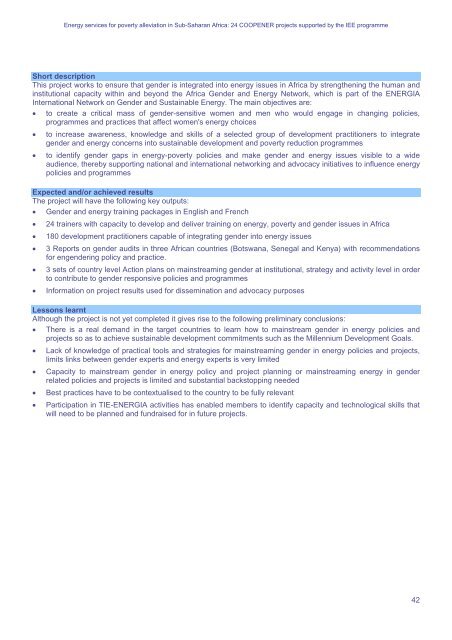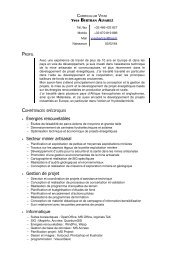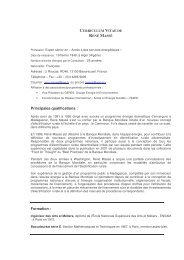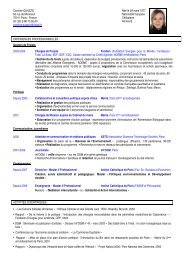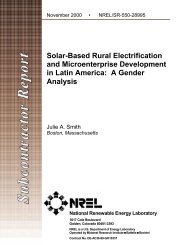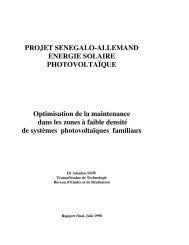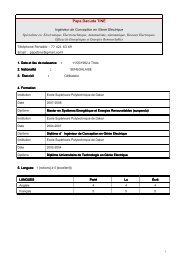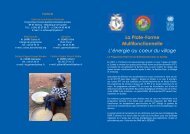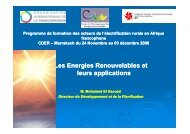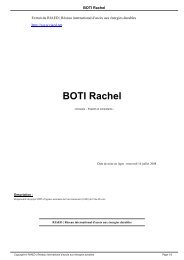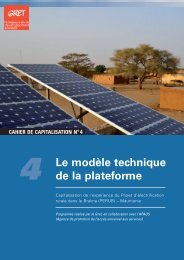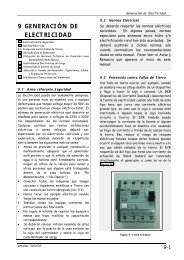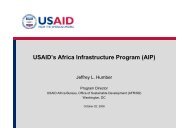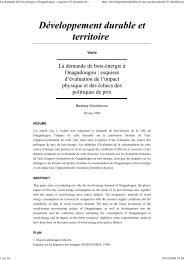Download - RIAED
Download - RIAED
Download - RIAED
Create successful ePaper yourself
Turn your PDF publications into a flip-book with our unique Google optimized e-Paper software.
Energy services for poverty alleviation in Sub-Saharan Africa: 24 COOPENER projects supported by the IEE programmeShort descriptionThis project works to ensure that gender is integrated into energy issues in Africa by strengthening the human andinstitutional capacity within and beyond the Africa Gender and Energy Network, which is part of the ENERGIAInternational Network on Gender and Sustainable Energy. The main objectives are:• to create a critical mass of gender-sensitive women and men who would engage in changing policies,programmes and practices that affect women's energy choices• to increase awareness, knowledge and skills of a selected group of development practitioners to integrategender and energy concerns into sustainable development and poverty reduction programmes• to identify gender gaps in energy-poverty policies and make gender and energy issues visible to a wideaudience, thereby supporting national and international networking and advocacy initiatives to influence energypolicies and programmesExpected and/or achieved resultsThe project will have the following key outputs:• Gender and energy training packages in English and French• 24 trainers with capacity to develop and deliver training on energy, poverty and gender issues in Africa• 180 development practitioners capable of integrating gender into energy issues• 3 Reports on gender audits in three African countries (Botswana, Senegal and Kenya) with recommendationsfor engendering policy and practice.• 3 sets of country level Action plans on mainstreaming gender at institutional, strategy and activity level in orderto contribute to gender responsive policies and programmes• Information on project results used for dissemination and advocacy purposesLessons learntAlthough the project is not yet completed it gives rise to the following preliminary conclusions:• There is a real demand in the target countries to learn how to mainstream gender in energy policies andprojects so as to achieve sustainable development commitments such as the Millennium Development Goals.• Lack of knowledge of practical tools and strategies for mainstreaming gender in energy policies and projects,limits links between gender experts and energy experts is very limited• Capacity to mainstream gender in energy policy and project planning or mainstreaming energy in genderrelated policies and projects is limited and substantial backstopping needed• Best practices have to be contextualised to the country to be fully relevant• Participation in TIE-ENERGIA activities has enabled members to identify capacity and technological skills thatwill need to be planned and fundraised for in future projects.42


